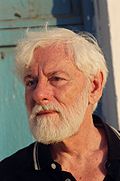THIS IS a story right out of "1001 Nights." The genie escaped from the bottle, and no power on earth can put it back.
When it happened in Tunisia, it could have been said: OK, an Arab country, but a minor one. It was always a bit more progressive than the others. Just an isolated incident.
And then it happened in Egypt. A pivotal country. The heart of the Arab world. The spiritual center of Sunni Islam. But it could have been said: Egypt is a special case. The land of the Pharaohs. Thousands of years of history before the Arabs even got there.
But now it has spread all over the Arab world. To Algeria, Bahrain, Yemen. Jordan, Libya, even Morocco. And to non-Arab, non-Sunni Iran, too.
The genie of revolution, of renewal, of rejuvenation, is now haunting all the regimes in the Region. The inhabitants of the "Villa in the Jungle" are liable to wake up one morning and discover that the jungle is gone, that we are surrounded by a new landscape.
WHEN OUR Zionist fathers decided to set up a safe haven in Palestine, they had the choice between two options:
They could appear in West Asia as European conquerors, who see themselves as a bridgehead of the "white" man and as masters of the "natives", like the Spanish conquistadores and the Anglo-Saxon colonialists in America. That is what the crusaders did in their time.The second way was to see themselves as an Asian people returning to their homeland, the heirs to the political and cultural traditions of the Semitic world, ready to take part, with the other peoples of the region, in the war of liberation from European exploitation.
I wrote these words 64 years ago, in a brochure that appeared just two months before the outbreak of the 1948 war.
I stand by these words today.
These days I have a growing feeling that we are once again standing at a historic crossroads. The direction we choose in the coming days will determine the destiny of the State of Israel for years to come, perhaps irreversibly. If we choose the wrong road, we will have "weeping for generations," as the Hebrew saying goes.
And perhaps the greatest danger is that we make no choice at all, that we are not even aware of the need to make a decision, that we just continue on the road that has brought us to where we are today. that we are occupied with trivialities -- the battle between the Minister of Defense and the departing Chief of Staff, the struggle between Netanyahu and Lieberman about the appointment of an ambassador, the non-events of "Big Brother" and similar TV inanities -- that we do not even notice that history is passing us by, leaving us behind.
WHEN OUR politicians and pundits found enough time -- amid all the daily distractions -- to deal with the events around us, it was in the old and (sadly) familiar way.
Even in the few halfway intelligent talk shows, there was much hilarity about the idea that "Arabs" could establish democracies. Learned professors and media commentators "proved" that such a thing just could not happen -- Islam was "by nature" anti-democratic and backward, Arab societies lacked the Protestant Christian ethic necessary for democracy, or the capitalist foundations for a sound middle class, etc. At best, one kind of despotism would be replaced by another.
The most common conclusion was that democratic elections would inevitably lead to the victory of "Islamist" fanatics, who would set up brutal Taliban-style theocracies, or worse.
Part of this, of course, is deliberate propaganda, designed to convince the naà �ve Americans and Europeans that they must shore up the Mubaraks of the region or alternative military strongmen. But most of it was quite sincere: most Israelis really believe that the Arabs, left to their own devices, will set up murderous "Islamist" regimes, whose main aim would be to wipe Israel off the map.
Ordinary Israelis know next to nothing about Islam and the Arab world. As a (left-wing) Israeli general answered 65 years ago, when asked how he viewed the Arab world: "though the sights of my rifle." Everything is reduced to "security", and insecurity prevents, of course, any serious reflection.
(Note: You can view every article as one long page if you sign up as an Advocate Member, or higher).





